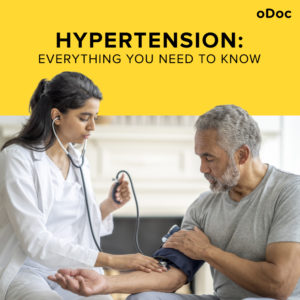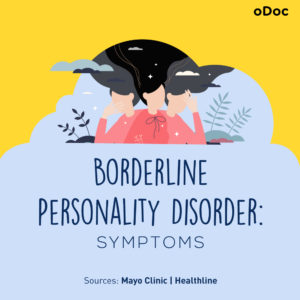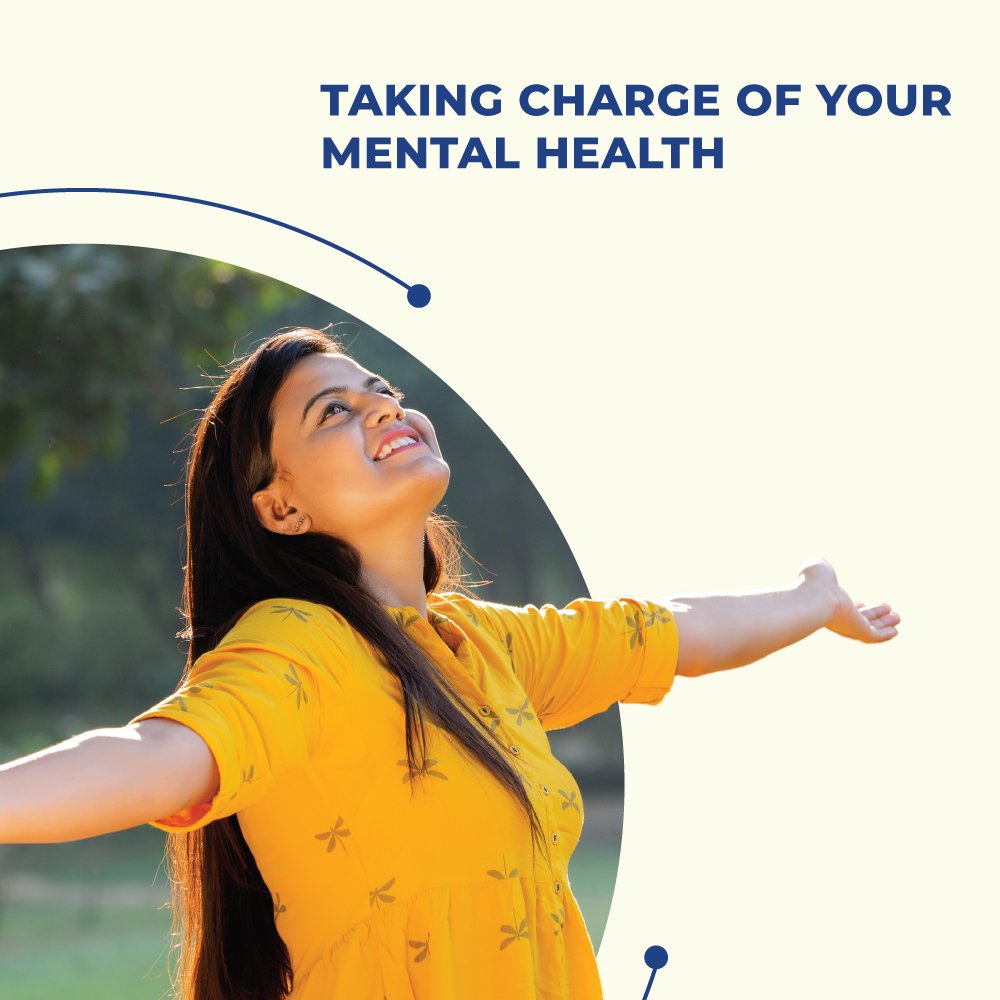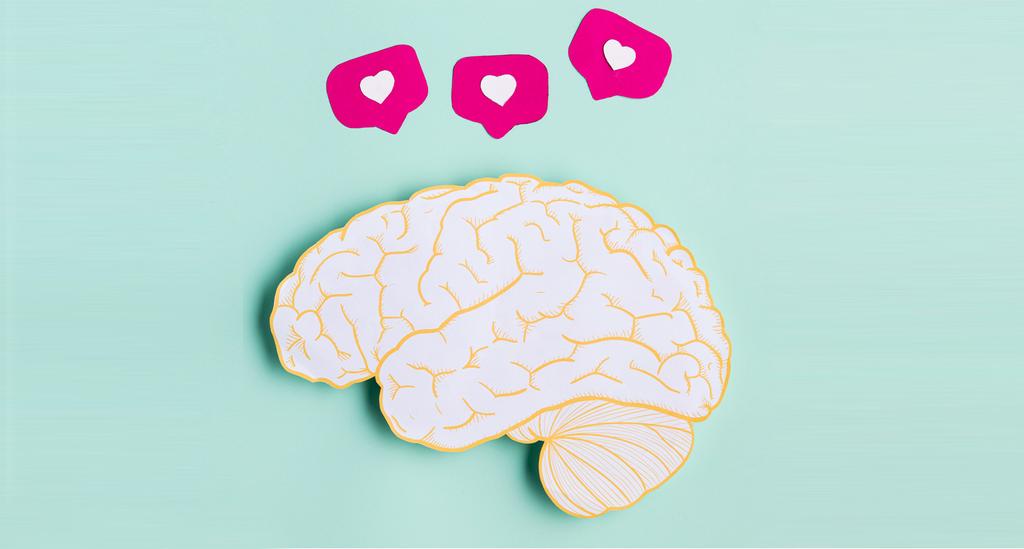The transcribed version of the video is available below.
Shevangi: Hi, good evening everyone. I’m Shevangi from the oDoc team and thank you so much for joining us today. Today, We’ll be talking about something very important in this day and age. It’s mental health and its importance. Have you ever felt overwhelmed with your daily tasks? Have you ever wanted to just drop off and just get away? Ever wondered what it takes to get over this and just carry on? These are thoughts that many of us have felt I think. So we at oDoc believe that this is a very, very important topic that one should not shy away from, but instead, we should talk about it out loud. So here to advise us on how best to overcome these thoughts that I mentioned before and move towards a much healthier mental wellbeing is Dr. Suhashini Ranatunga. Let me first start by giving a brief introduction about the specialist Dr. Suhashini. She’s a consultant psychiatrist at the national hospital, Sri Lanka and as well as a lecturer in psychiatry at the faculty of medicine, University of Colombo. She is also an MBBS, MD, and MRC holder specializing in psychiatry. Thank you so much, doctor, for taking the time out of your busy schedule to be with us today to discuss what I think is something very, very important for everyone today. So it’s a pleasure to have you on board. So welcome.
Dr. Suhashini: Thank you for having me and Thank you for choosing this topic to talk about today.
Shevangi : Okay, thank you, doctor. So without any further ado, I would like to just dive straight into the questions, but before that, to all our viewers who are watching, if you also have some questions, please do send us your questions by the comment section below and our team will send the questions over to me. And I will ask that the doctor at the end of the session. So the first question, Dr. Suhashini is, many of us are aware that good mental health stands for having a stable and positive outlook on life and its challenges, but is that all? what exactly is the correct definition or what exactly is mental health and how important is it to adopt good mental health habits?
Dr. Suhashini: Okay. I think part of the definition you have described in your question. If I have to define what mental health is, it is a state of wellbeing in which a person, a human being is able to realize his or her abilities and can cope with the normal stresses of life.
Not all of us will ever have a happily ever after. There will be challenges. There will be stresses, but a person with good mental health is able to face these challenges that he or she faces, and also a person with good mental health can work productively, can work fruitfully, and is able to contribute to society. So that is what mental health is all about. But we also talk about what positive mental health is. So positive mental health is not just the absence of a mental health disorder. It is not merely the absence of disease. It is something similar you might be able to grasp it this way, where we might not have any physical problems, any physical ailments, but you people say that you are very unfit. So you can’t take a walk, you can’t go on a hike because they feel physically unfit. So positive mental health is something similar to that where you might not be suffering from a mental health disorder, but so that you’re not suffering from a mental health disorder, but you also need to appreciate what positivity or positive mental health is all about. So that is having positive characteristics in your life with regards to health. And that is having a feeling of purpose. A sense of contentment, your ability to maintain fulfilling relationships, loving, fulfilling relationships, and your flexibility to learn new skills, to adapt to a new environment, to adapt to a new job, to adapt to a new family, and also to able to enjoy life, the ability to live life to the fullest.
So that is basically what positive mental health is all about.
Shevangi: Great. thank you doctor for clarifying that. Just jumping onto the second question, which is also related to what you were saying. What are the common mental health disorders in Sri Lanka and how do we recognize them in ourselves or even others or our loved ones?
Dr. Suhashini: Okay. That’s a very broad area. From my experience or research coming out in Sri Lanka, the commonest mental health disorder would be what we call depression. We see a wide variety of anxiety disorders. To you, it might mean stress disorders, stress-related disorders. And now with the aging community, we also see disorders related to cognition or dementia, which we talk about. We also see psychotic disorders, substance use disorders are becoming very common in Sri Lanka now. These are the spectrum of disorders, but something I would like to highlight or talk about is depression is very common in Sri Lanka and all over the world. If I am to give one message, that is basically that it is a treatable mental health disorder. Part of your question was basically how do we recognize these mental health disorders, with regards to any form of mental health disorders, not just depression, but even anxiety or even substance use disorders or even dementia. The basic concept or the whole mark feature of any mental health disorder is a drop in your functioning.
If you were somebody who was, you know, able to cope with work, cope with what was going on at home, cope with other stresses that you have, that stress is going on in your life. And suddenly you feel that your, your ability to cope or your ability to handle things are affected. And you’re not able to perform well as before. then that could indicate that something is going wrong.
With regards to depression, not only depression but all mental health disorders. There are lots of good websites that are available online which people can go online and look up and educate themselves about. That’s something I would like to do direct but if we have time, I’m more than happy to discuss the common mental health disorders and their common features.
Shevangi: You were talking about certain symptoms that you see within the common disorders. Let’s say ,does someone have to show these symptoms in order for them to seek help, or go speak to a mental health professional or someone who hasn’t face these symptoms Can they go and speak to them?
Dr. Suhashini: As psychiatrists, we see in Sri Lanka, we are not willing to talk about mental health problems or talk about our emotions. Basically having a mental health issue is considered a sign of weakness. Having a mental health problem is considered a weakness of personality. This is a huge misconception in our society. Sometimes some people would say that it is even the fault of the patient. Mistakenly people believe that if we are in a bad mood or if something is going wrong, we should be able to snap out of it. Because of all these misconceptions, people are extremely unwilling to come to a psychiatrist, to seek mental health, to go and see a mental health professional. And also patients themselves, don’t like to accept that they have a mental health disorder, because that would be a direct attack on themselves saying that I’m a weak person or I don’t have the courage to face up to these difficulties.
I think most importantly, I guess you can do it. The media can do it to improve mental health literacy in our country to make people understand that just like your heart can get affected, your stomach can get affected. So can the brain, and there can be problems occurring in the brain and these problems need professional help. And there are now good treatment options available with regards to mental health disorders. If patients do present there is very good help available to them.
Shevangi: Great. So if someone who hasn’t seen any of these symptoms can go seek help, right? There’s no set time when they should, or they shouldn’t?
Dr. Suhashini: Well, earlier the better. It’s also important that family members realize that there is a person who might benefit from a professional consult. Sometimes patients are brought to us, and a lot of bad things have happened to them. They have attempted suicide. they have used other methods like drowning out their pain like going into alcohol, taking drugs. Relationships have become strained as a result of the mental illness. Sometimes family members bring patients to us and even if the patient is not willing to come and see a professional. So I guess it’s everybody’s responsibility, it’s a collective responsibility. And if we do see patients with these behavioral patterns, these emotional disorders, then my advice is to get help as early as possible.
Shevangi: Great. Doctor, we got a question that’s coming from one of the viewers. So can I ask you that?
Dr. Suhashini: Yes, go ahead.
Shevangi: Quite a long question. So I’m going to read the whole thing. it’s from Chandika. say ” hi, one month ago, I broke up with my girlfriend, about a four months relationship and it’s just like a rebound. She had a lot of problems. Now. She’s not talking with me. All communication has been completely cut off. At the moment, it feels like I’m lost and I can’t concentrate on my work. I can’t get over with this breakup. What should I do? Can I please have your advice?”
Dr. Suhashini: Okay. So this is quite a common scenario we actually encounter. Number one, a breakup is basically a loss event. So a person is extremely attached to somebody and suddenly when this person is no longer in this person’s life, then we consider that as a loss event to a person and feeling anxious, feeling lonely, feeling that they have no purpose anymore, feeling that they’re useless. all this can actually have a huge impact on the self-esteem of a person, as well as on different aspects of the patient’s life. So the first important message is to feel lonely, to feel anxious is normal. We all experience these emotions and especially when somebody dear to us leaves us we all experience these emotions. The golden rule is with time, it does get better. But what am I supposed to do during that time? These might be things you can try out: Distraction works for a lot of people, talking to somebody works for a lot of people, connecting with your friends, your family spending quality time with them will have a huge impact on your mood. Starting a new routine or starting a new hobby might temporarily distract you. Things, which you should not be doing, are turning to alcohol. Some people say that I can forget her when I smoke weed or drink alcohol. So these will lead to long-term problems and they are not even temporary measures because you will feel worse the following day. My advice is basically to give it time, and spend quality time with other people, start something new, a new project, or whatever, and stay away from the negative things that can have any negative impact on your mental health. If these thoughts like feeling anxious, unable to sleep, feeling very low, inability to work, um, problems at the workplace. If this continues for months and months and if they’re becoming worse. Then that might be an indication that you’re going in for depression. And then it might be time for you to see somebody, a professional.
Shevangi: Great. Thank you for that doctor. That was really helpful, very elaborate. one more question, within our generation today, work stress or being stressed in general is something a lot of us face. Everyone talks about it. Like it’s, it’s normal for us, right? . Being stressed.
So could you give us a few tips that we can follow to reduce the stress or handle it better?
Dr. Suhashini: Yeah, that’s an interesting question. So there are people who are prone to stress, we call them anxious individuals where their predisposition is to become stressed or to get stressed for the slightest thing. Feeling anxious is a normal human emotion. But if this goes on long-term that is when it starts having negative consequences on one’s physical health as well as your mental health. What is most important is that we have a balance of work, recreation, or time to wind down. For different people, there are different ways in which they find relaxation. for some people it might be listening to music, spending some time with friends, family, for some people it might be meditation. for some people, it might be just going out for a walk. So it is an individualized thing and each person needs to find out what their anti-stress button is. If you’re feeling stressed, then you need to kind of probably spend more time attending to those kinds of activities. In the meantime, I mean, these are general things. It’s important for you to realize what are the things that stress me out. If it is exams, then you need to do something about it. So generally we feel stressed at exams because we are worried about how our performance will be or that we feel under-prepared. Then if it is that you need to start preparing early. If it is something like viva or facing an interview, then you need to have interview prep and start practicing for that early on. The hallmark feature is that the more you expose yourself to something that causes anxiety, the less anxious you will become with time. So if you are somebody who becomes very anxious at interviews, Then before the actual interview day, you need to, you know, expose yourself, face mock interviews as much as possible. the more you face them on the day of the interview, the anxiety will be less because the brain has gone through something similar to that before. If you’re somebody who becomes very anxious because you can’t keep deadlines, then that is somebody who needs to manage their time better. If you’re somebody who gets very stressed because of problems with relationships, then you need to handle your relationships better. There are different types of therapies now which are taught or which are done for people with anger management, for people with assertiveness issues, people with interpersonal relationships. So maybe attending one of those courses might be helpful.
Shevangi: Great. doctor, I have another question which leads on from one of the answers you gave me previously, you said depression was one of the most common disorders that you see in our generation in Sri Lanka. So if it’s so common, are there any tips or things you would like to tell a family member or someone who is taking care of a loved one who’s going through depression? Is there something you can say you should not say anything like that?
Dr. Suhashini: Okay.something you can say is if a doctor has prescribed medication for depression, the most important thing is that you make sure that that family member takes the medicine. The chances of you recovering if you do take the medication as prescribed is about 60 to 70%. So basically encourage the family member to take the medication. Lots of negative things with regards to mental health or things that can worsen depression: taking alcohol, Drugs ,negative relationships, negative people in your life, critical people. if there’s domestic violence at home or any form of physical, sexual, emotional abuse, those kinds of things can maintain depression. These are the myths with regards to depression: in our society, we are extremely scared to ask about suicide. evidence has shown that if you ask about suicide, if you asked a depressed person, are you feeling suicidal? And that person says, yes, then you need to basically act on it and take that very seriously. The myth is people used to wonder if I ask about suicide from him. Am I putting thoughts? Am I putting ideas into his head? So that doesn’t happen. If you ask about suicide, you’re actually saving a life. If this person says yes, then it, then this person needs immediate professional help. If this patient says, no, don’t worry. You’re not putting an idea into his head. Saying you know, he might go and commit suicide. So the danger of depressionis suicide that is one of the dangers. So basically providing this patient, making sure that this patient takes medicine, staying away from negative things and making sure this person visits their regular mental health professional are things the family can help with.
Shevangi: Great. Thank you doctor. The other question I have is also related to something you said earlier. You said that mental health is not something we speak about in Sri Lanka. It’s still a very taboo topic. If you look at the Western world, there’s so much noise around it and everyone’s doing something they can. So what can we as individuals do more or do better to spread awareness on mental health and how important it is to speak about it?
Dr. Suhashini: Yeah. So I think what you’re doing right now is doing a lot you know, talking about mental health. It shouldn’t be a taboo topic, at home with your family members, in school. It shouldn’t be something that, you know, we speak behind closed doors. Depression is so common. I mean, one in five people is affected by depression. The amount of patients that present to mental health services is less than 20%. So what can we do? So talking about it might help. The media can play a huge role. If it is a school teacher or a principal of a school, they can have awareness days or sessions to talk about mental health.
In our own homes, as parents, we can encourage our children to express themselves, talk about their emotions. We get very worried, even as parents, when our children start crying and then the moment they start crying to try to distract them and try to sush them down. So take these as opportunities, even when negative things occur in a family, take them as opportunities to talk about negative emotions with your child. I guess these are the things we can do. And also to express empathy to people suffering from mental illness, the moment a person is diagnosed with cancer or a heart attack, we rush to go and see them. And, you know, we are all out to help them. But if we know that a person is suffering from a mental illness, then we prefer to kind of step back because we are not sure how to handle this, what might we can do about it? Depressed people are some of the loneliest people in the world and a depressed person will, actually a symptom of depression is withdrawing themselves from society, withdrawing, drawing themselves from their friends circle and staying inside closed doors, inside their room, thinking about all the negative things. So, I guess if you have a friend or a family member who you think is depressed, offering to go and spend time with them, listening to them, taking them out for a walk or a coffee or lunch might actually do a lot for that person’s mental health.
Shevangi: Definitely. Great. Thank you, doctor. So we have come down to the last two questions which have been sent to us from our viewers. one before the last is how can you build resilience? How can we rebuild resilience mentally as we come out of what 2020 has been?.
Dr. Suhashini: Okay. So earlier I spoke about positive mental health. Positive mental health does not mean that you never go through bad times or experience emotional problems. We all go through disappointments. The last year has been full of disappointments for all of us at different levels. We have had loss and we have had change. so these are all part of normal life, normal. they’re all human experiences we all experience throughout a lifespan. These experiences will cause sadness, they will cause anxiety, and stress. But just as a physically healthy person is able to bounce back from an illness or an injury, people with strong mental health are also able to bounce back from adversity, trauma, disappointments, and stress. So, this is what we call resilience. What I discussed earlier, things to build resilience are basically to cultivate positive mental health, doing all the positive things, and staying away from all the negative things that impact your life.
Shevangi: Great. Thank you, doctor. So we’re onto our last question. It was sent anonymously to us via DMs. So this person has said, lately, I’m having a lot of stress in my family life. I think it’s affecting my mental health, like, I’m always forgetting, not being able to focus on anything for a long time. Can’t have pleasure from anything that I used to enjoy before. And it’s even hard to do my job lately. So many mistakes in my work. What can you say about this?
Dr. Suhashini: Well, okay. So what he or she has described is classic anxiety, classic stress where you’re not able to concentrate, you’re making a lot of mistakes at your workplace, you’re having problems with your relationships. something which I can recommend is what we call problem-solving therapy where we talk about what are the main issues? What are the main negative things that are happening in your life right now? What are the things you can do about it? What are the positive things you can do about it? So let’s say if he says that, I’m in a financial crisis right now, I’m going through a lot of financial hardships. Okay. So then you can say, what can I do to improve my circumstances at the moment? and then we asked him to make a pros and cons list. And then, try and think of what is the best decision I can take or what is the best next step and then acting on it? So it’s a form of therapy where we focus on the problem. Try to look for the solutions or come up with different solutions, picking the correct solution, picking the correct way to go forward, and then acting on it. That helps. Also, if you’re going through anxiety, like we discussed earlier, think of things that have reduced your anxiety earlier. it might be talking to a friend, talking to your spouse. maybe taking some time off work, spending some time outdoors, things like that. And spending some time with regards to that. Also if you’re taking alcohol, drugs, then probably staying away from that. If anxiety levels are very high, you’re finding it extremely difficult to fall asleep at night. And if it’s having a huge impact on your life, then there’s also medication that can be prescribed on a short-term basis until you get through this difficult period.
Shevangi: Great. Thank you so much for answering all our questions, doctor. it’s been amazing. We’ve come to the end of our webinar today. You’ve clarified a lot of my doubts and everyone else who has sent us questions. So thank you so much. As you said, it’s a very important topic that everyone should be talking about. And we at oDoc completely believe that, and we will continue to voice out about mental health and spread awareness wherever or whenever we can. So thank you so much for taking time off to answer all our questions. It was a very informative session. If any of you who are watching would like to get advice from Dr. Suhashini in a more private setting, you could always consult her through oDoc and clarify any doubts you may have from the safety and privacy of your homes. With that, I would like to conclude this discussion. Thank you so much doctor once again, it’s been a pleasure.
Dr. Suhashini: Thank you. Thanks for having me and thanks for talking about positive mental health.
Shevangi: Definitely. thank you so much, doctor. Hopefully, we’ll have another session soon to spread more awareness.
Similar Articles...

How to Keep Work Stress from Taking Over Your Life
How to Keep Work Stress from Taking Over Your Life In today’s fast-paced and competitive world, work stress has become an all-too-common problem that affects

Hypertension: Everything You Need to Know
Hypertension: Everything You Need to Know Hypertension, commonly known as high blood pressure, is a chronic medical condition that affects a significant portion of the

Understanding Borderline Personality Disorder: Symptoms, Causes, and Treatment Options
Understanding Borderline Personality Disorder: Symptoms, Causes, and Treatment. Borderline Personality Disorder (BPD) is a mental health disorder characterised by instability in mood, behaviour, and relationships.









